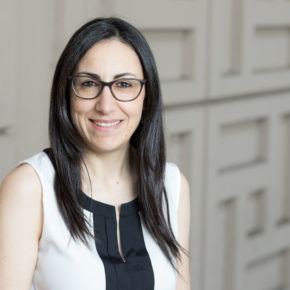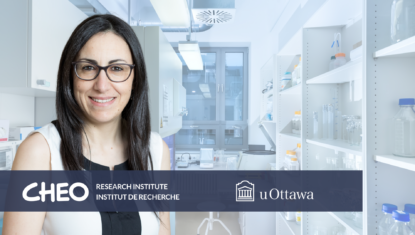Dr. Djaoud received her DVM degree at the Higher National Veterinary School of Algiers. After obtaining a Master’s degree in Immunology from Paris Descartes University and Paris-Est Créteil University, Dr. Djaoud completed a PhD in Human Immunology at the University of Nantes, with Dr. Christelle Retière. During her doctoral work, Dr. Djaoud studied the human immunity to cytomegalovirus (CMV). She then pursued her research, as a post-doctoral fellow and a research scientist, in the laboratory of Dr. Peter Parham at Stanford University, where she made several important findings on the human immunity to herpesviruses and cancer. Dr. Djaoud’s current research at the University of Ottawa and the CHEO Research Institute investigates how specific human immune cell populations can efficiently kill virus-infected cells and cancer cells.
Additional Research Areas: Blood Research (Vasculitis, Hematology, Thrombosis), and Immunology
Related News
Research Projects
-
Phosphoantigen-Stimulated γδ T Cells Suppress Natural Killer-Cell Responses to Missing-Self
03/05/2022
n conclusion, our investigation shows that NK-cell priming with pAg-stimulated γδ T cells significantly reduced NK-cell responses to “missing-self” but did not affect the ability of NK cells to mediate ADCC. This γδ T cell–mediated immunosuppression of NK cells was BTN3A1 dependent, could be prevented by exogenous cytokines and did not occur if direct contact between NK cells and γδ T cells was prevented in Transwell cultures.
-
HLAs, TCRs, and KIRs, a triumvirate of human cell-mediated immunity
20/06/2020
-
Two alternate strategies for innate immunity to Epstein-Barr virus: One using NK cells and the other NK cells and γδ T cells
03/05/2017
In making an innate immune response to EBV, human individuals form two distinctive groups that differ according to the types of lymphocytes recruited to the response. Group 1 individuals make both an NK cell and a Vγ9Vδ2 T cell response. In contrast, group 2 individuals make only an NK cell response, but it is a stronger one than that made by group 1 individuals. Of the 24 blood donors we studied, 13 are in group 1 and 11 are in group 2, indicating that the human population divides evenly into these two groups.


